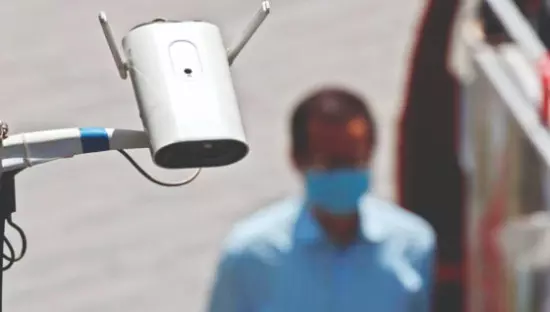Over 32,000 CCTV’s non-functional

New Delhi: Thousands of malfunctioning CCTV cameras across Delhi are raising concerns that crimes and negligence cases may go unresolved, while residents say they feel increasingly unsafe in public spaces and hospitals.
An internal review earlier has revealed that over 32,000 of the 2.64 lakh cameras installed across 70 assembly constituencies are not working. In addition, more than 15,000 cameras that were sanctioned were never put in place. Several constituencies were found to have far fewer cameras than allocated, leaving wide gaps in surveillance.
A former Delhi Police official warned that this could directly hinder investigations. “In most cases of street crime or negligence disputes, CCTV footage is the first line of evidence. If the cameras don’t work, the probe begins with a handicap,” he said.
The lapses are stark in government hospitals, where incidents often demand video verification. At Lok Nayak Hospital, more than 150 from 706 cameras are out of order, while Lady Hardinge Medical College reported 32 of its 744 cameras not functioning. By contrast, some Hospitals said all cameras were operational.
Patients and attendants say the blind spots make them uneasy. “My mother is admitted at LNJP. So many cases we’ve heard earlier still haunts which is why one of the family member has to be present all the time. Anything can happen in those corridors and no one will know,” said Anil Gupta, a CR park resident.
A woman visiting LNJP for treatment echoed the fear. “Crowds are heavy and tempers flare. Cameras give a sense of security, but if they’re off, women like me feel exposed,” said Pooja Kumari, a patient from Lajpat Nagar.
Residents also argue that fixing existing cameras should be the priority. “What’s the point of adding more if the old ones don’t even work? We need functioning cameras, not just big numbers on paper,” said Mukesh Verma, a shopkeeper in Old Delhi.
Experts say that without reliable surveillance, both accountability and safety are at risk. “Hospitals and public places need round-the-clock monitoring. A single non-functional camera can mean no proof of an assault or theft. It leaves victims helpless,” said Dr. Dharmendra Raj, a health security consultant.
The Public Works Department (PWD), responsible for installation and upkeep, has sought Rs.100 crore to add 50,000 more cameras. Delhi already has about 2.8 lakh units from a project launched in 2020, though nearly 9,000 cameras under the second phase are still pending installation.
Officials promise the new expansion will be completed within 12 months of
funding approval.
Until the government completes its promised audit of installation records and vendor compliance, Delhi continues to operate with serious surveillance blind spots, leaving probes into thefts, assaults, and negligence cases at risk of going unresolved.



